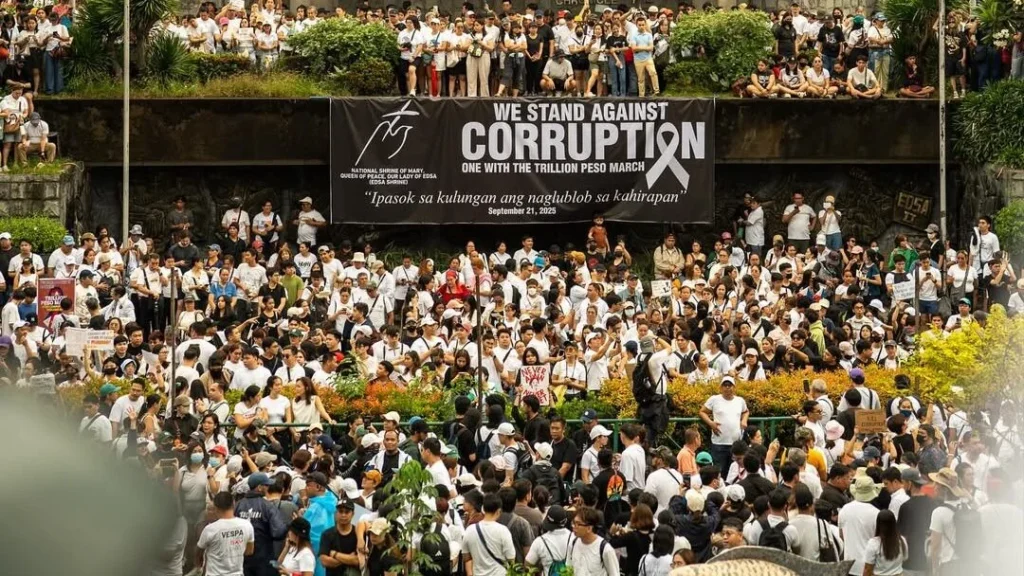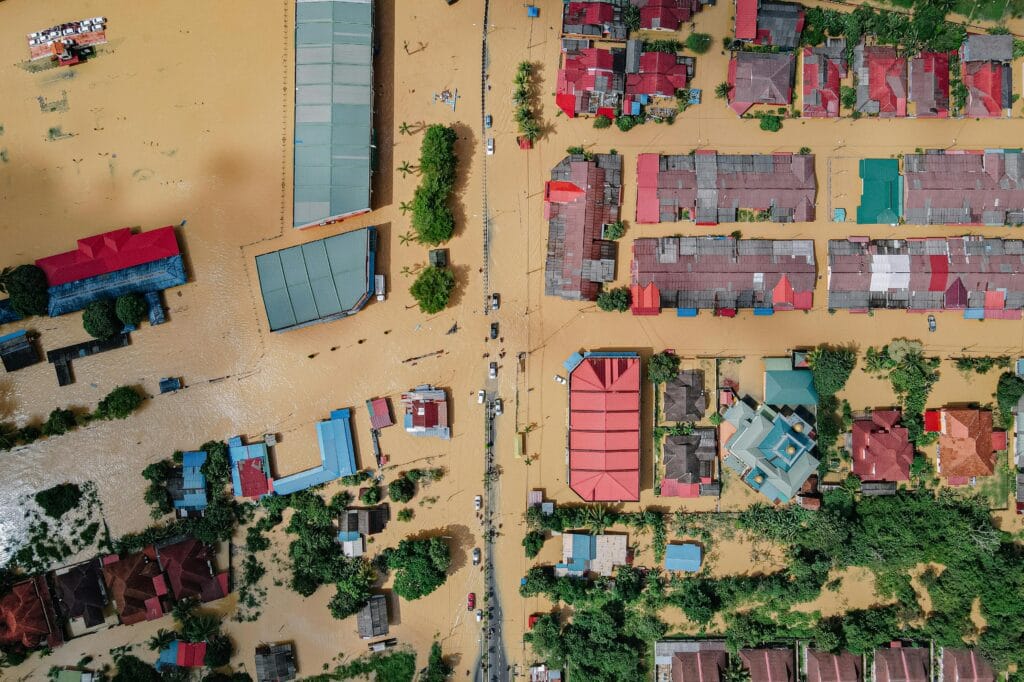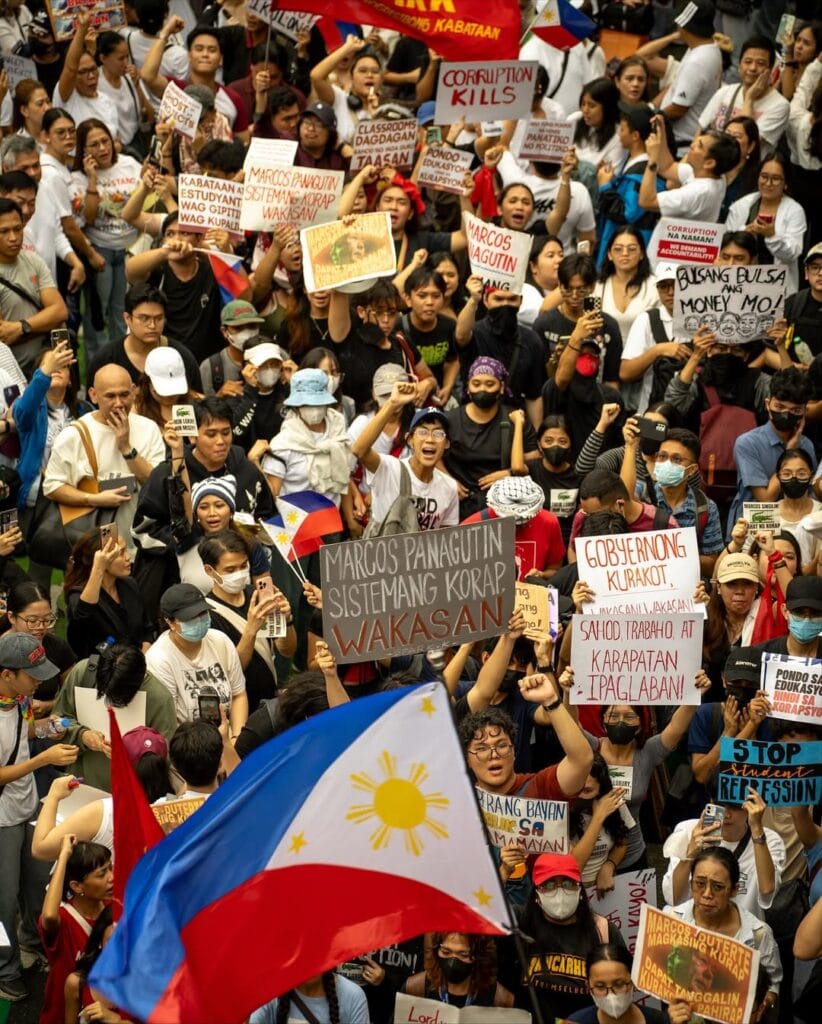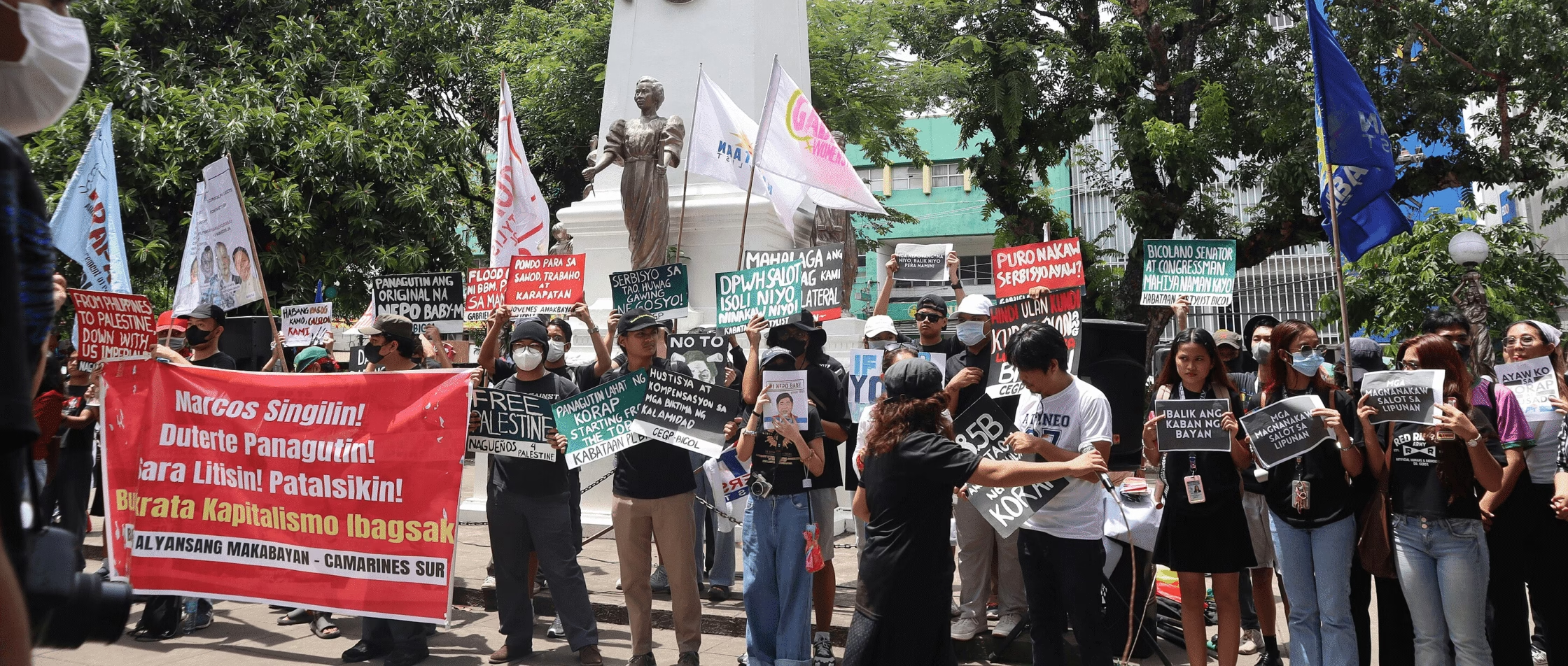In the aftermath of Super Typhoon Nando devastating the largest island in the Philippines, tens of thousands took to the streets at the end of September. Their protests targeted the corrupt political system that diverted public funds to private pockets while the population was plunged deeper into crisis.
Amidst persistent flooding in the aftermath of a Category 5 Typhoon that killed 11 and impacted half a million people, displays of immense personal wealth by construction company owners drew the public’s attention. These same companies were implicated in pocketing funds designated for flood control projects, sparking outrage across the country. The Philippines has reportedly lost $2.8 billion CAD in public money to flood control corruption since 2023.
The North Star interviewed Joey Calugay, an organizer in the Filipino community in Montreal, to get insight into the protests, which began shortly after the 53rd anniversary of the notorious kleptocrat Ferdinand Marcos’ declaration of Martial Law.
The mayor of Pasig, Vico Sotto, criticized journalists for calling attention to the lavish lifestyle and luxury car collection of a major construction mogul. At the time, thousands were still displaced from their homes due to poor protections.
“These projects that were supposed to mitigate flooding haven’t been happening,” Calugay told The North Star. “Money has been pouring out of public funds into private hands, including corrupt politicians, but none of the projects were actually implemented properly or at all.”
Calugay is a member of Migrante Quebec, an organization of Filipino migrants. He says that, while the main catalyst of the current protests against President “Bong Bong” Marcos Jr.’s administration is corruption, the deepening wealth divide and crises impacting the country’s working class makes the environment ripe for mass mobilizations.

“Our anger is towards corruption because we see the disparity between the rich and the poor in our face. They are flaunting it on TikTok and Instagram. The nepo-babies, the children of these corrupt politicians and corrupt businesspeople, are flaunting their wealth and acting indignant about people’s ire towards them. People are angry, but that can only go so far. We need to be more angry at the system that creates that disparity, and we need to be critical and analytical about that.”
He detailed that in addition to suffering from flooding, working people have been suffering through a global economic crisis in which prices and unemployment keep going up while wages decline. “People are feeling that, and that’s why they are more prone to take to the streets.”
“Migrante Quebec is a part of this movement calling for National Democracy in the Philippines. They have been calling out government corruption for the longest time and calling out the system of bureaucrat capitalism in the Philippines as one of the major ills in society that’s been keeping the people impoverished and forcing people to migrate out and try to find better lives abroad or jobs to send money back home to their families,” he explained.

“It’s a system that not only benefits the profits of local businessmen and corrupt politicians, but definitely benefits the monopoly capitalist investment and foreign investment in the Philippines.”
Calugay made it clear that people are not just angry at Marcos. They’re also angry at the vice president Sarah Duterte (daughter of the former president Rodrigo Duterte, currently imprisoned at the International Court of Justice). He says people aren’t buying into the posturing of the official opposition, either.
“Corruption is not just about one person or one dynasty in government, but the whole system itself,” he remarked. Calugay also criticized the politicians who tell people that Marcos can be worked with and that the system can be reformed from within.
“That kind of opportunism of the opposition parties that were participating in the demonstrations, people were seeing right through that. That wasn’t the case during the Marcos Sr. dictatorship back in the 1980s.”
Police arrested more than 200 people during the protests, and human rights groups have reported instances of police brutality and illegal detainments. Calugay explained that activists for national democracy in the Philippines have won mass support by sticking to their popular demands amidst harsh repression at the hands of well-funded, deeply corrupt institutions set up by recent governments.
“The National Task Force to End Local Communist Armed Conflict is one of the biggest anti-insurgency apparatuses in the Philippines right now,” he explains. “Their task is to tag people as ‘reds’ or ‘communists’ or ‘terrorists’ and ensure that they’re isolated first, targeted, and then subject to state repression.”

Huge portions of the national budget are poured into this task force, with much of it earmarked for rewards for people who “come back into the fold” by surrendering to the government and “turn away from their rebel lifestyle.”
“This task force has, for years now, been parading around hundreds of peasants who have been forced to surrender, forced to admit that they are rebels and sign papers with promises of rewards to be able to invest and come back into the Philippines. But instead, this money is going into the pockets of the generals and local politicians. So that’s also a source of corruption and private plundering of public funds.”
Calugay summarized the main demands of the demonstrators:
- that the corrupt people are held responsible and go to jail immediately;
- a total overhaul of government, in which “these family dynasties that play musical chairs leading the government” since Spanish colonial rule should be broken and not allowed in Philippine politics;
- that real democracy occurs “where we build our industries and our economy so that people have real jobs and have real development”;
- that the land monopoly is broken in the countryside and genuine agrarian reform pursued to benefit and develop agriculture and the lives of landless peasant farmers;
- an end to the government’s civil war against its own people;
- an end to the following of dictates of America or China or any other foreign imperialist country; and
- that the country is left alone to develop its democracy, economy, and society without foreign interference or meddling.
The Migrante Quebec member said that “one thing the Canadian people can do [to help] is rise up against their own corrupt government and instill a truly democratic society here in Canada. They can end Canada’s imperialist role and intervention in the region, including in the Philippines, through its Indo-Pacific strategy, which supports U.S. imperialism in that region.”
Calugay drew some notable similarities to recent uprisings in other countries like Indonesia and Nepal. He acknowledged the impact of “the Gen Z effect”, where young people in particular are rising up as they become fed up with the open corruption of their governments. He stressed the importance of the fact “that youth begin to analyze and understand what’s wrong with the system that’s been the guiding point of society.”
“They need to reject not only the corruption, but also the whole system itself, and they need to think about what kind of system they want to set up to make their societies more democratic. I’m hopeful that the young people are starting to make that analysis.”

